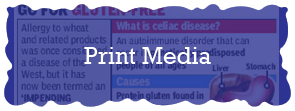FAQ's
a. What is an allergy ?
Allergies are very common and increasing in India affecting around one in Five people at some time in their lives. There are many different causes of allergy and symptomas vary from mild to potentially life-threatening. Allergy is also one of the major factors associated with the cause and persistence of asthma. Fortunately effectiveprevention and treatment options are available for most allergies.
b. What happens when you have an allergic reaction ?
When a person who is allergic to a particular allergen comes into contact with it, an allergic reaction occurs. This begins when the allergen (for example, pollen) enters the body, triggering an antibody response. The antibodies attach themselves to special cells, called mast cells. When the pollen comes into contact with the antibodies, the mast cells respond by releasing certain substances, one of which is called histamine. When the release of histamine is due to an allergen, the resulting swelling and inflammation is extremely imitating and uncomfortable
The most common causes of allergic reactions are :
- Dust mites
- Pollen
- Food such as peanuts, cow’s milk, soy, seafood and eggs
- Cats and other furry or hairy animals such as dogs, horses, rabbits and guinea pigs
- Insect stings
- Moulds
- Medicines
Similar reactions can occur to some chemicals and food additives, however if they do not involve the immune system, they are known as ‘adverse reactions’ rather than ‘allergy’.
c. Which areas of the body may be affected?
Depending on the allergen and where it enters your body, you may experience different symptoms. For example, pollen, when breathed in through the nose, usually causes symptoms in the nose, eyes, sinuses and throat (allergic rhinitis). Allergy to food usually causes stomach or bowel problems and may cause hives (urticaria). Allergic reactions can also involve several parts of the body at the same time.
The nose, eyes, sinuses and throat
When allergens are breathed in, the release of histamine causes the lining of your nose to produce lots of mucus and to become swollen and inflamed. If causes your nose to run and itch and violent sneezing may occur. Your eyes may also start to water and you may get a sore throat.
The lungs and chest
Asthma can sometimes be triggered during an allergic reaction. When and allergen is breathed in, the lining of the passages in the lungs swells and makes breathing difficult. Not all asthma is caused by allergy, but in many cases allergy plays a part.
The stomach and bowel
Most stomach upsets are caused by richness or spiciness in food itself, rather than an actual allergy to it. However, foods that are most commonly associated with allergy include peanuts, seafood, dairy products and eggs. Cow’s milk allergy in infants may occur and can cause eczema, asthma, colic and stomach upsets. It may also lead to failure to thrive. Some people cannot digest lactose (milk sugar). This intolerance to lactose also causes stomach upsets but must not be confused with allergy.
The skin
Skin problems such as eczema (dry, red, itchy skin) and urticaria (also known as hives) often occur. Hives are white, itchy bumps which look and feel like insect bites. Food may be a factor in some cases of hives and eczema.
d. Is Life-threatening allergic reactions required immediate treatment?
Most allergic reactions are mild to moderate and do not cause major problems, even thought for many people they may be a source of extreme irritation and discomfort.
However a small number of people may experience a severe allergic reaction called anaphylaxis. It is a serious condition that requires immediate life-saving medication.
Some of the more frequent allergens which may cause this are peanuts, shellfish, insect stings and drugs. If you know that you have a very severe allergy, you should have an anaphylaxis management plan from your doctor.
e. What is the Effective prevention and treatment ?
Allergen avoidance (or reduction) relies on identifying the cause of your allergy and then taking steps to reduce your exposure to the allergen. For instance, many people are allergic to dust mites, therefore reducing them in the house is important. Medications used to treat allergies include :
- Antihistamines – These block histamine release from mast cells, thereby reducing many irritating and uncomfortable symptoms. Non-sedating antihistamine tablets rarely cause drowsiness and are available from pharmacies without a prescription. Antihistamine nasal and eye sprays can also be used.
- Intranasal cortiocosteroid nasal sprays (INCS) – are very effective for treatment of moderate to severe allergic rhinitis (hay fever) when used appropriately and regularly.
- Medicated eye drops
- Adrenaline – is used for first-aid emergency treatment of life-threatening severe allergic reactions (anaphylaxis).





